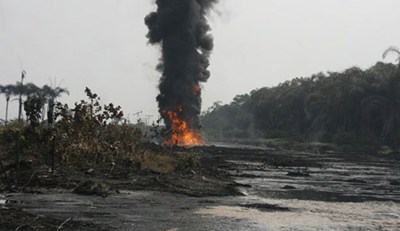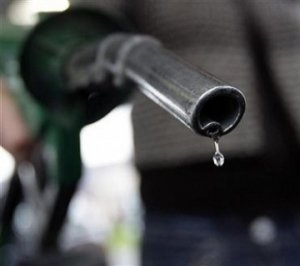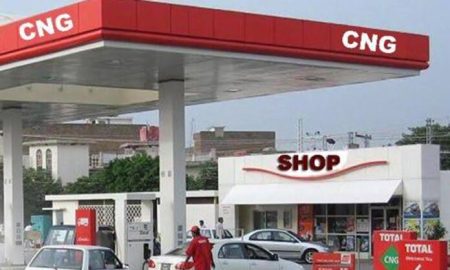
Ike Amos
Abuja — The Nigerian National Petroleum Corporation, NNPC, Sunday, disclosed that it suffered 94 per cent increase in the cases of willful hacking and destruction of its pipeline infrastructure across the country in November last year, fingering oil thieves as culprits.
In a statement in Abuja, on the release of its Monthly Financial and Operations Report for November 2019, Acting Group General Manager, Group Public Affairs Division of the NNPC, Mr. Samson Makoji, stated that 68 pipeline points were vandalized, representing about 94 per cent increase from the 35 points that were breached in October 2019.
He added that out of the vandalised points, 15 failed to be welded while only two pipeline points were ruptured.
Giving a breakdown of the breach, Makoji noted that the Mosimi-Ibadan axis accounted for 31 per cent of the breaks; Atlas Cove-Mosimi network witnessed 19 per cent, while Ibadan-Ilorin and other routes accounted for 15 per cent and 35 per cent respectively.
He assured that the NNPC, in collaboration with the local communities and other stakeholders, would continuously strive to reduce and eventually eliminate this menace through effective collaboration.
Furthermore, he revealed that Nigeria earned $504.44 million from crude oil and gas exports in November 2019, representing an improvement of 4.39 per cent over the previous month’s export.
Also Read: NNPC’s proposed 1,350mw plant, strategy to monetise gas – Kyari
According to him, crude oil export sales contributed $383.89 million, an equivalent of 76.10 per cent of the dollar transactions compared with $396.94 million contribution in the previous month; while export gas sales amounted to $120.55 million in the month.
He further stated that between November 2018 to November 2019, crude oil and gas worth $5.46 billion was exported.
In addition, Makoji disclosed that the daily average natural gas supply to gas-powered plants in November last year increased by 16.53 per cent to 645 million standard cubic feet per day, MMSCFD, equivalent to power generation of 2,178 megawatts, MW.
Comparatively, he stated that the October 2019 gas supply to power averaged 553mmscfd to generate 2,050 MW.
Makoji added that national gas production in November 2019 stood at 228.65 billion Cubic Feet (BCF), translating to an average daily production of 7,621.68 million Standard Cubic Feet per day (mmscfd).
He said, “For the period November 2018 to November 2019, a total of 3,091.24BCF of gas was produced, representing an average daily production of 7,882.27mmscfd during the period, according to the report.
“A period-to-date Production from Joint Ventures (JVs), Production Sharing Contracts (PSCs) and Nigerian Petroleum Development Company (NPDC) contributed about 69.50 per cent, 21.06 per cent and 9.44 per cent respectively to the total national gas production.
“Out of the total volume of gas supplied in November 2019, 137.02BCF of gas was commercialized, consisting of 35.29BCF and 101.73BCF for the domestic and export market respectively.
“This translates to a total supply of 1,176.40mmscfd of gas to the domestic market and 3,391.04mmscfd of gas supplied to the export market for the month, implying that 59.91 per cent of the average daily gas produced was commercialized, while the balance of 40.09 per cent was re-injected, used as upstream fuel gas or flared.
“Gas flare rate was 8.29 per cent for the month under review, i.e. 632.37mmscfd, compared with an average gas flare rate of 8.80 per cent, i.e. 692.97mmscfd for the period November 2018 to November 2019.”



